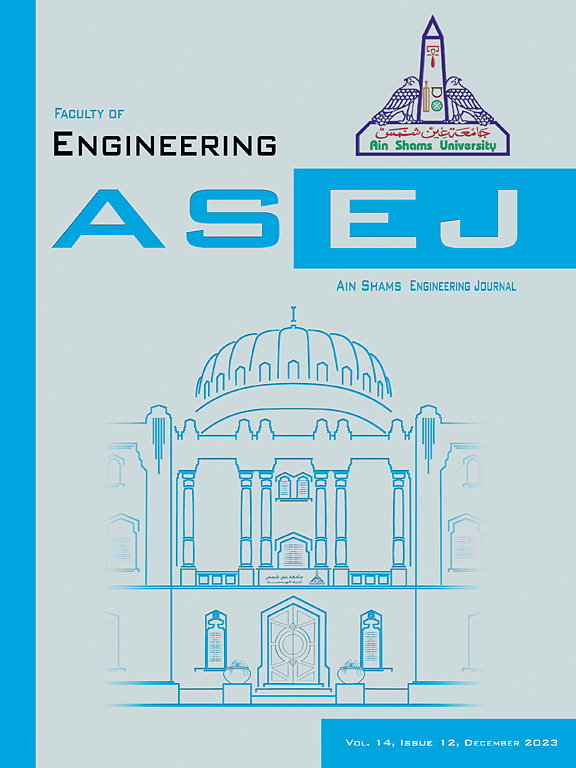Tropical Cyclone Intensity Prediction using Bayesian Machine Learning with Marine Predators Algorithm on Satellite Cloud Imagery
IF 6
2区 工程技术
Q1 ENGINEERING, MULTIDISCIPLINARY
引用次数: 0
Abstract
Due to its wide range of associated hazards, tropical cyclones (TC) become the costliest natural disaster worldwide. A correct diagnosis model for the TC intensity can save property and lives. Unfortunately, intensity forecasting of TC has been a bottleneck and has made it difficult to forecast weather. Several existing approaches and techniques make a diagnosis of TC wind speed through the satellite data at the specified time with varying success. Deep learning (DL)-based intensity forecasting has recently held great promise in surpassing conventional approaches. DL-based techniques have been developed in geosciences to replace traditional methods. However, weather forecasting is uncertain due to the Earth system’s nonlinearity, complexity, and chaotic effects. Thus, this manuscript develops a new Bayesian Machine Learning with Marine Predators Algorithm for TC Intensity Prediction (BMLMPA-TCIP) approach. The major goal of the BMLMPA-TCIP model is to estimate the level of the TCs on satellite cloud images. To accomplish this, the BMLMPA-TCIP technique utilizes the Gaussian filtering (GF) approach to eradicate the noise in the cloud images. Additionally, the extraction of useful feature vectors is performed by using the capsule network (CapsNet) technique. Moreover, the MPA method accomplishes the hyperparameter tuning of the CapsNet method. Lastly, the BMLMPA-TCIP technique utilizes the Bayesian Belief Network (BBN) method to predict TC intensity. To authorize the performance of the BMLMPA-TCIP approach, a wide variety of experiments are performed under the TC image dataset. The experimental validation of the BMLMPA-TCIP approach illustrates a superior RMSE value of 5.89 over existing techniques.
基于海洋掠食者算法的贝叶斯机器学习在卫星云图上的热带气旋强度预测
由于其广泛的相关危害,热带气旋(TC)成为世界范围内最昂贵的自然灾害。正确的TC强度诊断模型可以挽救财产和生命。不幸的是,热带气旋的强度预报一直是一个瓶颈,给天气预报带来了困难。现有的几种方法和技术都是通过特定时间的卫星数据来诊断TC风速,但成功率不同。基于深度学习(DL)的强度预测最近在超越传统方法方面具有很大的前景。基于dl的技术已经在地球科学领域发展起来,以取代传统的方法。然而,由于地球系统的非线性、复杂性和混沌效应,天气预报是不确定的。因此,本文开发了一种新的贝叶斯机器学习与海洋捕食者算法用于TC强度预测(BMLMPA-TCIP)方法。BMLMPA-TCIP模型的主要目标是估计卫星云图上的tc水平。为了实现这一点,BMLMPA-TCIP技术利用高斯滤波(GF)方法消除云图像中的噪声。此外,利用胶囊网络(CapsNet)技术提取有用的特征向量。此外,MPA方法完成了CapsNet方法的超参数整定。最后,BMLMPA-TCIP技术利用贝叶斯信念网络(BBN)方法预测TC强度。为了验证BMLMPA-TCIP方法的有效性,在TC图像数据集下进行了各种各样的实验。实验验证了BMLMPA-TCIP方法的RMSE值为5.89,优于现有方法。
本文章由计算机程序翻译,如有差异,请以英文原文为准。
求助全文
约1分钟内获得全文
求助全文
来源期刊

Ain Shams Engineering Journal
Engineering-General Engineering
CiteScore
10.80
自引率
13.30%
发文量
441
审稿时长
49 weeks
期刊介绍:
in Shams Engineering Journal is an international journal devoted to publication of peer reviewed original high-quality research papers and review papers in both traditional topics and those of emerging science and technology. Areas of both theoretical and fundamental interest as well as those concerning industrial applications, emerging instrumental techniques and those which have some practical application to an aspect of human endeavor, such as the preservation of the environment, health, waste disposal are welcome. The overall focus is on original and rigorous scientific research results which have generic significance.
Ain Shams Engineering Journal focuses upon aspects of mechanical engineering, electrical engineering, civil engineering, chemical engineering, petroleum engineering, environmental engineering, architectural and urban planning engineering. Papers in which knowledge from other disciplines is integrated with engineering are especially welcome like nanotechnology, material sciences, and computational methods as well as applied basic sciences: engineering mathematics, physics and chemistry.
 求助内容:
求助内容: 应助结果提醒方式:
应助结果提醒方式:


